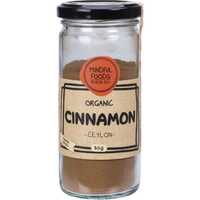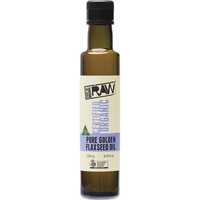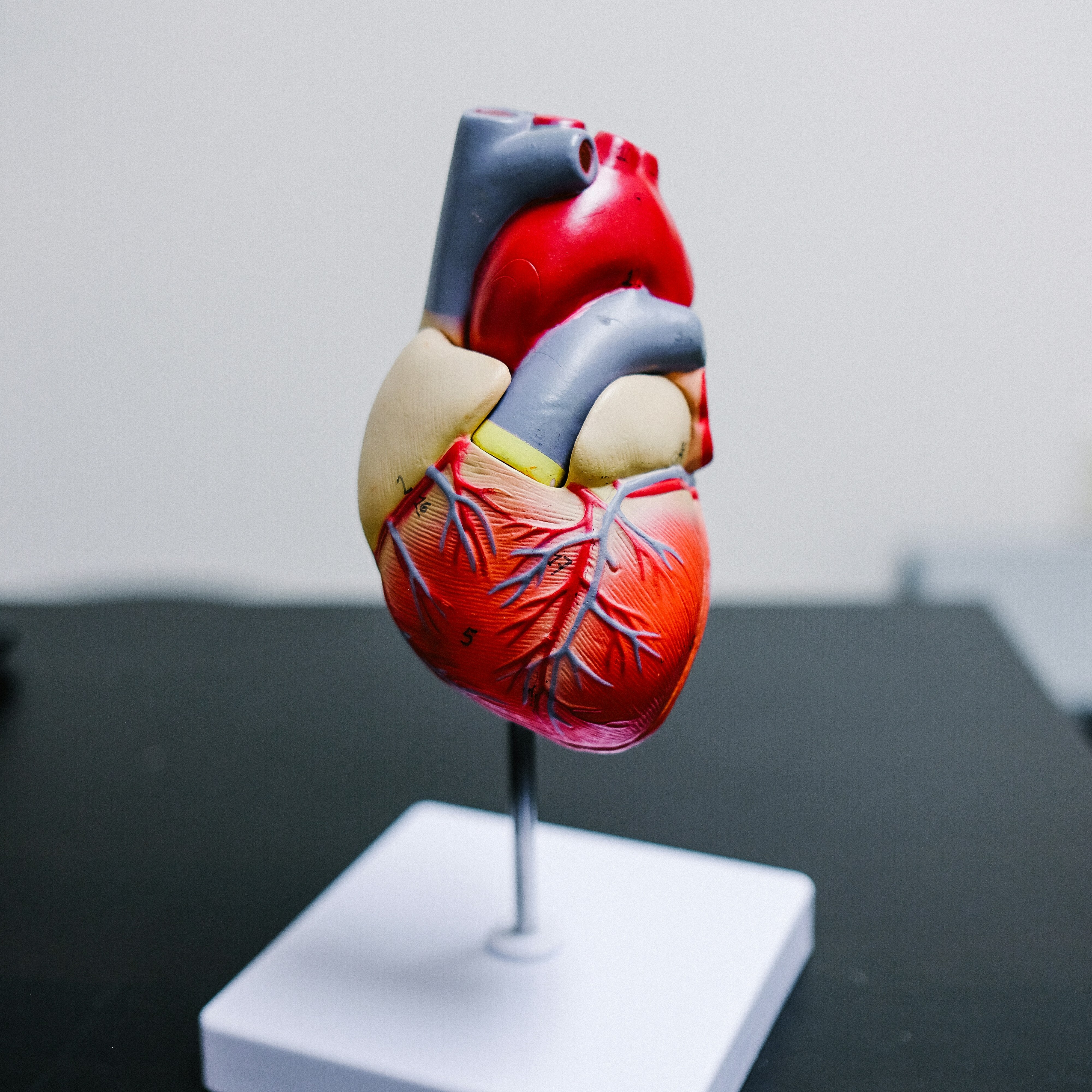High cholesterol levels can increase your risk of heart disease and stroke. While medication can help lower cholesterol, there are also natural ways to reduce your levels and improve your overall health. In this article, we'll explore a holistic approach to lowering cholesterol levels naturally through lifestyle changes, natural remedies, and a healthy diet.
Understanding Cholesterol
Before we dive into ways to lower cholesterol, it's important to understand what cholesterol is and how it affects our bodies. Cholesterol is a waxy substance found in the fats (lipids) in our blood. Our bodies need cholesterol to build healthy cells, but too much cholesterol can lead to plaque buildup in our arteries, increasing the risk of heart disease and stroke.
There are two types of cholesterol: low-density lipoprotein (LDL) and high-density lipoprotein (HDL). LDL is often referred to as "bad" cholesterol because it can build up in the walls of our arteries, while HDL is known as "good" cholesterol because it helps remove LDL from the bloodstream.
Holistic Approach to Lowering Cholesterol
A holistic approach to lowering cholesterol involves making lifestyle changes and incorporating natural remedies to improve overall health and reduce cholesterol levels. Here are some ways to lower cholesterol naturally:
1. Adopt a Plant-Based Diet
One of the most effective ways to lower cholesterol levels is by adopting a plant-based diet. Plant-based foods, such as fruits, vegetables, whole grains, and legumes, are naturally low in cholesterol and saturated fats. They also contain high levels of fiber, which can help lower LDL cholesterol levels.
Try incorporating more plant-based meals into your diet, such as a vegetable stir-fry, lentil soup, or a quinoa salad. You can also swap out meat for plant-based protein sources, like tofu, tempeh, or beans.
2. Exercise Regularly
Regular physical activity is not only beneficial for overall health, but it can also help lower cholesterol levels. Exercise can increase HDL cholesterol levels and decrease LDL cholesterol levels. It can also help with weight management, which is important for maintaining healthy cholesterol levels.
Try to incorporate at least 30 minutes of moderate to vigorous exercise into your daily routine. This can include activities like brisk walking, jogging, cycling, or swimming.
3. Reduce Stress
Stress can have a negative impact on our health, including our cholesterol levels. When we are stressed, our bodies produce more cortisol, a hormone that can increase LDL cholesterol levels. Finding ways to manage stress, such as through meditation, yoga, or deep breathing exercises, can help lower cholesterol levels.
4. Quit Smoking
Smoking can damage the walls of our arteries, making it easier for cholesterol to build up and form plaque. It can also lower HDL cholesterol levels. Quitting smoking can help improve overall health and lower cholesterol levels.
Top 10 Herbs for Lowering Cholesterol
1. Garlic
Garlic has been used for centuries as a natural remedy for various health conditions, including high cholesterol. It contains a compound called allicin, which has been shown to lower LDL cholesterol levels and increase HDL cholesterol levels.
Studies have also shown that garlic can help reduce blood pressure and prevent blood clots, making it a beneficial herb for overall heart health.
2. Turmeric
Turmeric is a popular spice in Indian cuisine and has been used in traditional medicine for its anti-inflammatory properties. It contains a compound called curcumin, which has been shown to lower LDL cholesterol levels and prevent the buildup of plaque in the arteries.
In addition to its cholesterol-lowering effects, turmeric has also been linked to improved brain function and reduced risk of heart disease.
3. Ginger
Ginger is another herb commonly used in cooking and traditional medicine. It contains compounds called gingerols and shogaols, which have been shown to lower LDL cholesterol levels and reduce inflammation in the body.
Studies have also found that ginger can help improve blood sugar control and reduce the risk of heart disease.
4. Hawthorn
Hawthorn is a herb that has been used for centuries to treat heart-related conditions. It contains antioxidants and flavonoids that can help lower LDL cholesterol levels and improve blood flow.
Studies have also shown that hawthorn can help reduce blood pressure and improve symptoms of heart failure.
5. Cinnamon
Cinnamon is a popular spice that has been used in traditional medicine for its anti-inflammatory and antioxidant properties. It contains a compound called cinnamaldehyde, which has been shown to lower LDL cholesterol levels and increase HDL cholesterol levels.
In addition to its cholesterol-lowering effects, cinnamon has also been linked to improved blood sugar control and reduced risk of heart disease.
6. Fenugreek
Fenugreek is an herb that has been used in traditional medicine for its anti-inflammatory and antioxidant properties. It contains a compound called saponins, which have been shown to lower LDL cholesterol levels and increase HDL cholesterol levels.
Studies have also found that fenugreek can help improve blood sugar control and reduce the risk of heart disease.
7. Artichoke
Artichoke is a herb that has been used in traditional medicine for its liver-protective properties. It contains compounds called cynarin and luteolin, which have been shown to lower LDL cholesterol levels and increase HDL cholesterol levels.
Studies have also found that artichoke can help improve digestion and reduce the risk of heart disease.
8. Red Yeast Rice
Red yeast rice is a fermented rice product that has been used in traditional Chinese medicine for centuries. It contains a compound called monacolin K, which has been shown to lower LDL cholesterol levels.
Studies have also found that red yeast rice can help reduce the risk of heart disease and improve overall heart health.
9. Flaxseed
Flaxseed is a popular herb that has been used for its many health benefits, including its ability to lower cholesterol levels. It contains a compound called alpha-linolenic acid, which has been shown to lower LDL cholesterol levels and increase HDL cholesterol levels.
Studies have also found that flaxseed can help reduce inflammation and improve blood sugar control.
10. Psyllium
Psyllium is a herb that is commonly used as a natural laxative. It contains a soluble fiber called mucilage, which has been shown to lower LDL cholesterol levels and improve overall heart health.
Studies have also found that psyllium can help improve digestion and reduce the risk of heart disease.
Making Lifestyle Changes for Lower Cholesterol
In addition to incorporating natural remedies, making lifestyle changes can also help lower cholesterol levels. Here are some tips for making lifestyle changes to reduce cholesterol:
1. Maintain a Healthy Weight
Being overweight or obese can increase cholesterol levels. By maintaining a healthy weight, you can help lower cholesterol levels and reduce the risk of heart disease and stroke. If you are struggling with weight management, try incorporating more plant-based foods into your diet and increasing physical activity.
2. Limit Saturated and Trans Fats
Saturated and trans fats can raise LDL cholesterol levels. Limiting these types of fats in your diet can help lower cholesterol levels. Avoid foods like red meat, full-fat dairy products, and processed foods that are high in saturated and trans fats.
3. Increase Omega-3 Fatty Acids
Omega-3 fatty acids can help lower cholesterol levels and reduce the risk of heart disease. You can find omega-3 fatty acids in foods like fatty fish, flaxseeds, and chia seeds. If you don't consume enough omega-3s through your diet, you can also take a fish oil supplement.
4. Get Enough Sleep
Lack of sleep can increase cortisol levels, which can lead to higher cholesterol levels. Aim for 7-9 hours of sleep each night to help lower cholesterol levels and improve overall health.
Creating a Balanced Nutrition Plan
A balanced nutrition plan is essential for maintaining healthy cholesterol levels. Here are some tips for creating a balanced nutrition plan:
1. Incorporate a Variety of Foods
Eating a variety of foods can help ensure you are getting all the nutrients your body needs. Try to incorporate a variety of fruits, vegetables, whole grains, and lean proteins into your meals.
2. Choose Healthy Fats
Not all fats are bad for you. Healthy fats, like monounsaturated and polyunsaturated fats, can help lower cholesterol levels. These can be found in foods like avocados, olive oil, and nuts.
3. Limit Added Sugars and Salt
Added sugars and salt can increase the risk of heart disease and stroke. Limiting these in your diet can help lower cholesterol levels and improve overall health. Try to limit added sugars to less than 10% of your daily calorie intake and aim for less than 2,300 mg of sodium per day.
Conclusion
Natural cholesterol reduction is possible through a holistic approach that includes lifestyle changes, a good exercise routine, natural remedies, and a healthy diet. By adopting a plant-based diet, exercising regularly, reducing stress, and incorporating natural remedies, you can improve your overall health and reduce your risk of heart disease and stroke. Remember to consult with your healthcare provider before making any significant changes to your diet or lifestyle.


 Certified Organic
Certified Organic Vegan Friendly
Vegan Friendly  Vegetarian
Vegetarian Organic Ingredients
Organic Ingredients Dairy Free
Dairy Free Gluten Free
Gluten Free Keto Friendly
Keto Friendly

































